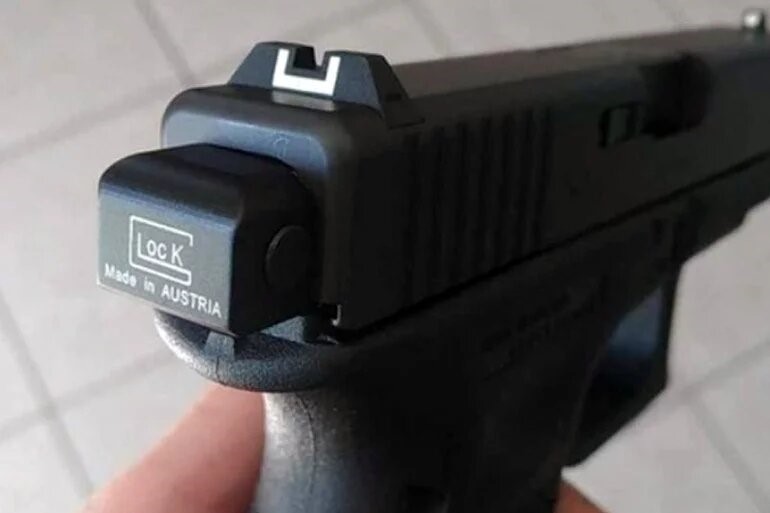CHARLOTTE AMALIE — A St. Thomas man crouched in fear behind a parked van in Estate Tutu on St. Thomas Monday.
When he was arrested by federal authorities, he had $800,000 cash on him and a machine pistol that could fire 30 rounds at a time.
John Michael Burgos, 20, of St. Thomas, appeared on Thursday before U.S. Magistrate Judge Ruth Miller for an arraignment on an indictment charging him with unlawful possession of a machine gun, U.S. Attorney Gretchen C.F. Shappert said.
“The circumstances certainly indicate illicit conduct was at play — law-abiding citizens do not carry around $800,000 cash with a fully loaded automatic pistol and a 30-round magazine, just in case the 11 rounds in the pistol itself prove not to be enough,” Assistant U.S. Attorney Meredith Edwards said in open court, according to the Virgin Islands Daily News.
After a detention hearing held the same day, Judge Miller ordered Burgos detained.
According to court documents, on February 24, 2020, federal agents encountered Burgos in the area of the Tutu Park Mall, where he fled from agents.
When Burgos eventually surrendered, agents discovered a 30-round extended magazine in his pants pocket and a fully loaded Glock pistol equipped with an auto sear—a conversion device that renders the pistol fully automatic (i.e., a machine gun)—on the ground, underneath a van he had been seen crouching behind.
Burgos had $800,000 in cash in a duffle bag in his vehicle.
During an interview with federal agents, Burgos admitted that the Glock pistol with the auto sear was his.
This case is being investigated by the U.S. Bureau of Alcohol, Tobacco, Firearms and Explosives (ATF), the U.S. Drug Enforcement Administration (DEA), the U.S. Department of Homeland Security Investigations (HSI), and the Virgin Islands Police Department (VIPD).
It is being prosecuted by Assistant U.S. Attorney Meredith Edwards.
United States Attorney Shappert said that a criminal indictment is merely a formal charging document and is not in and of itself evidence of guilt.
“Every defendant is presumed innocent until and unless found guilty,” she said.

